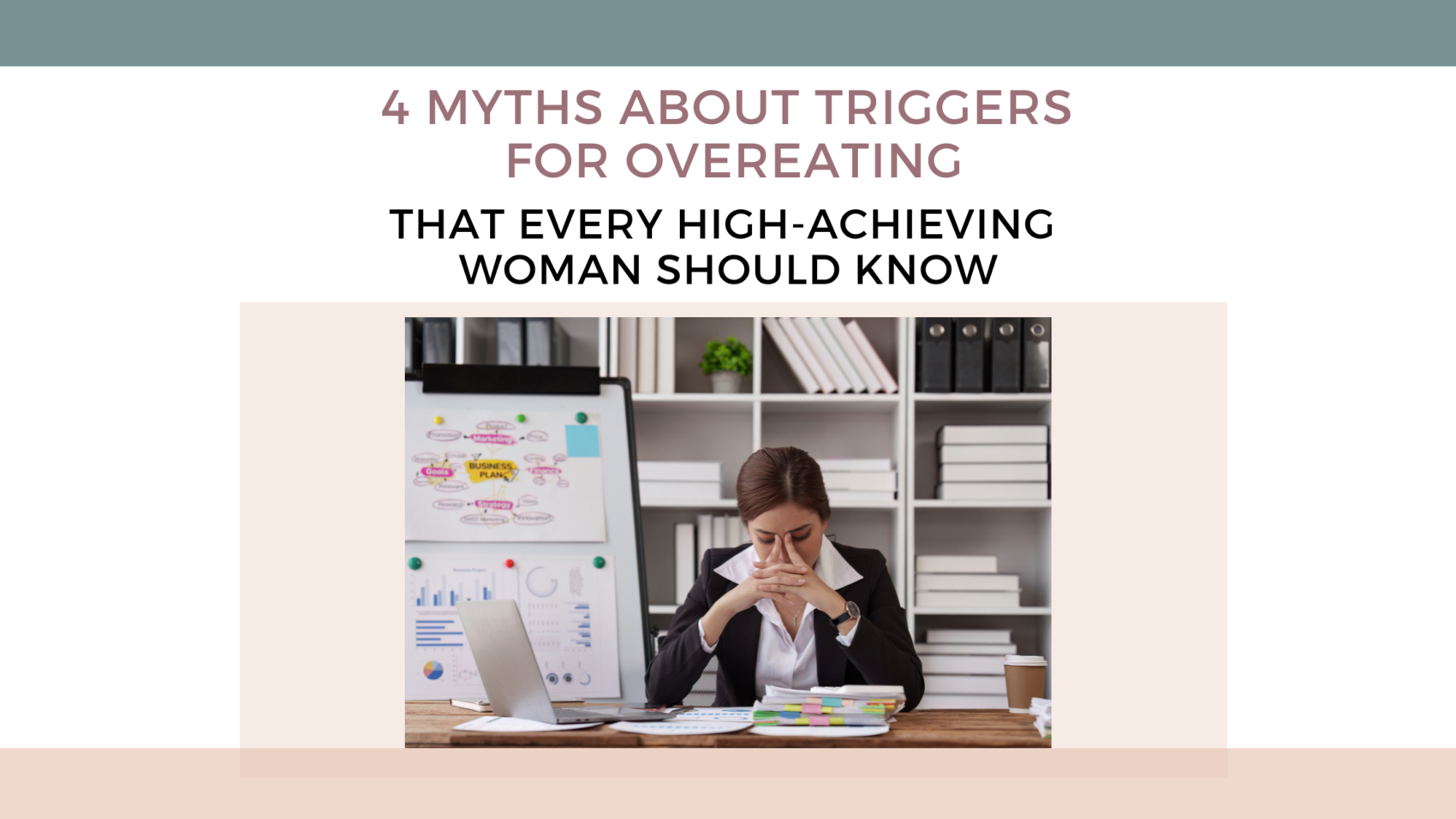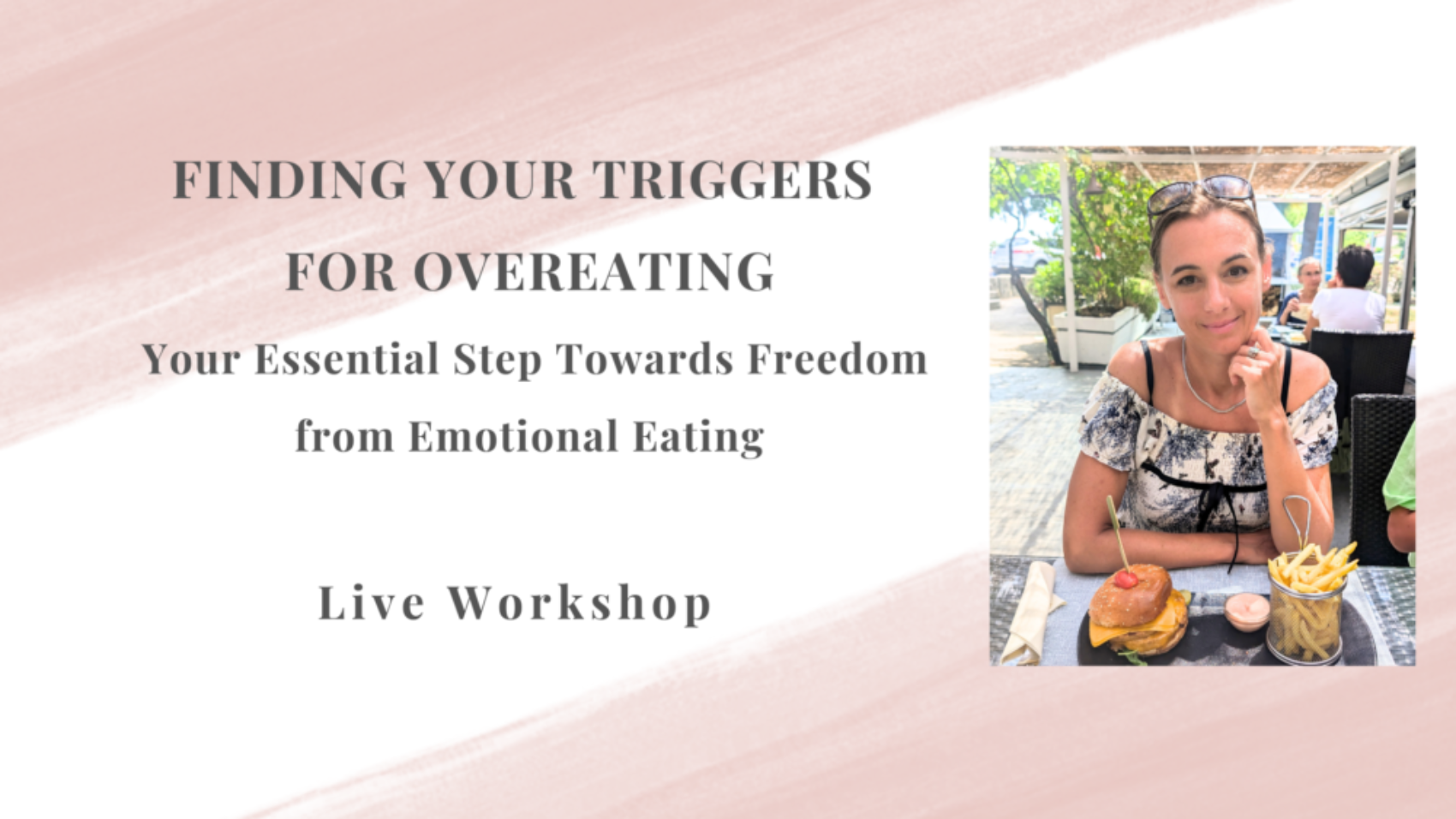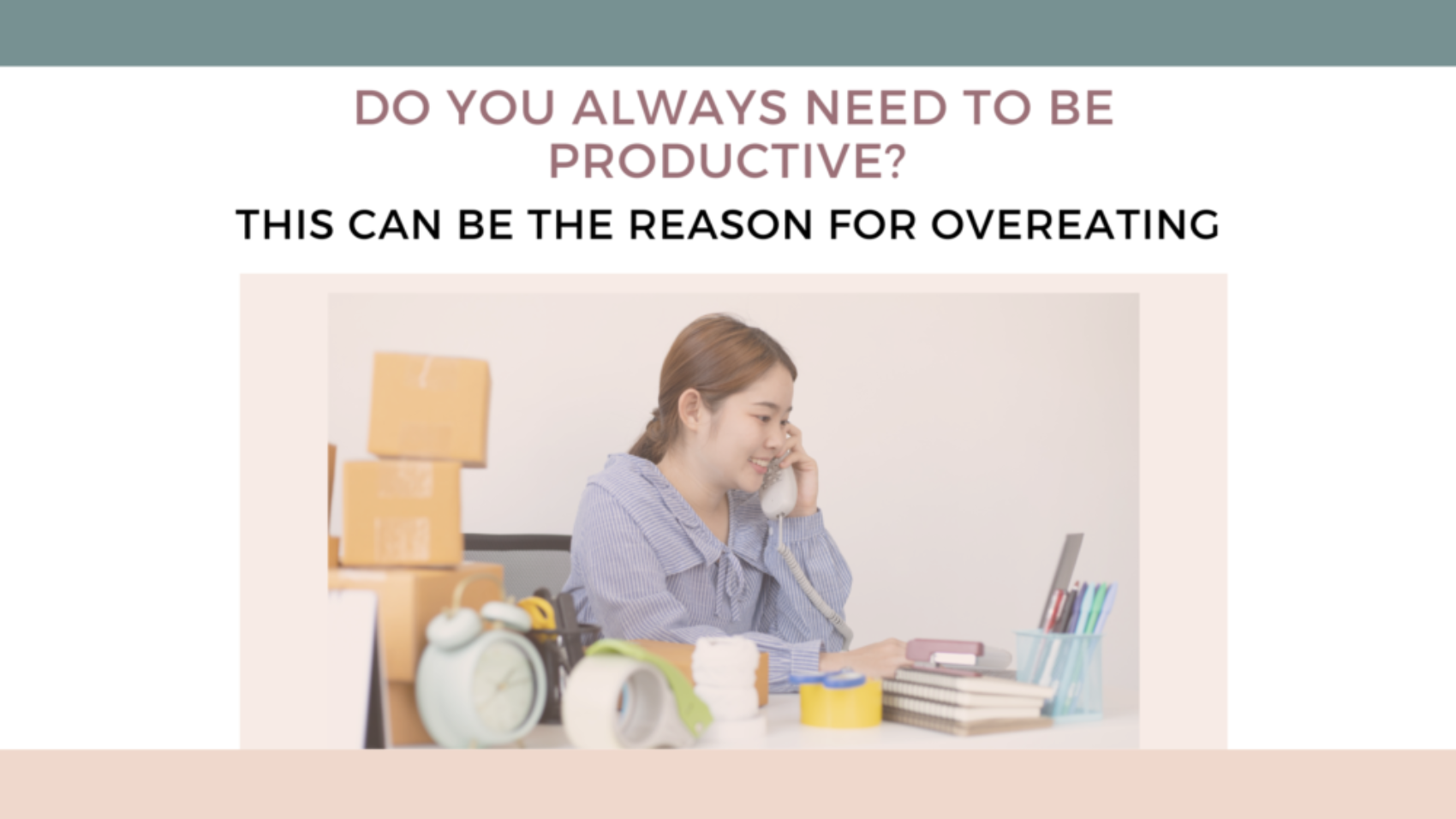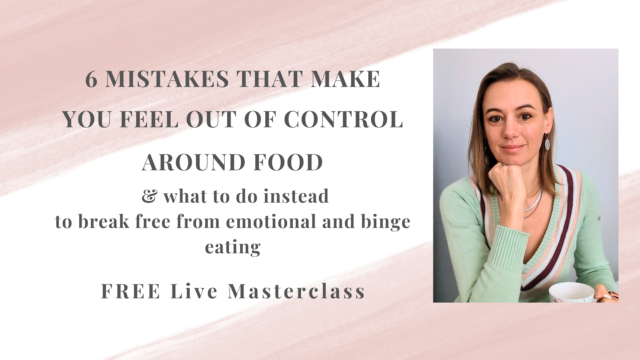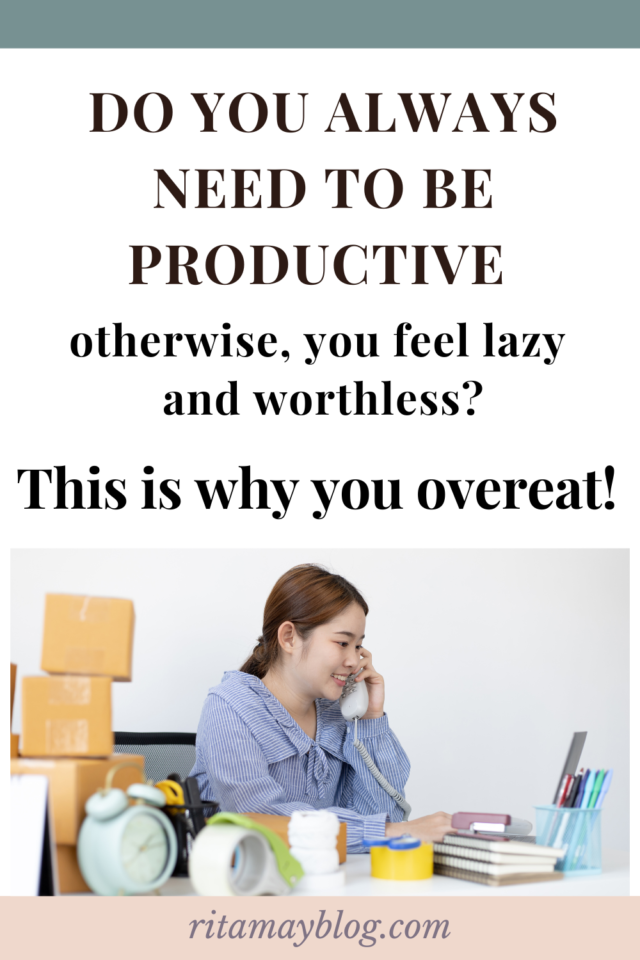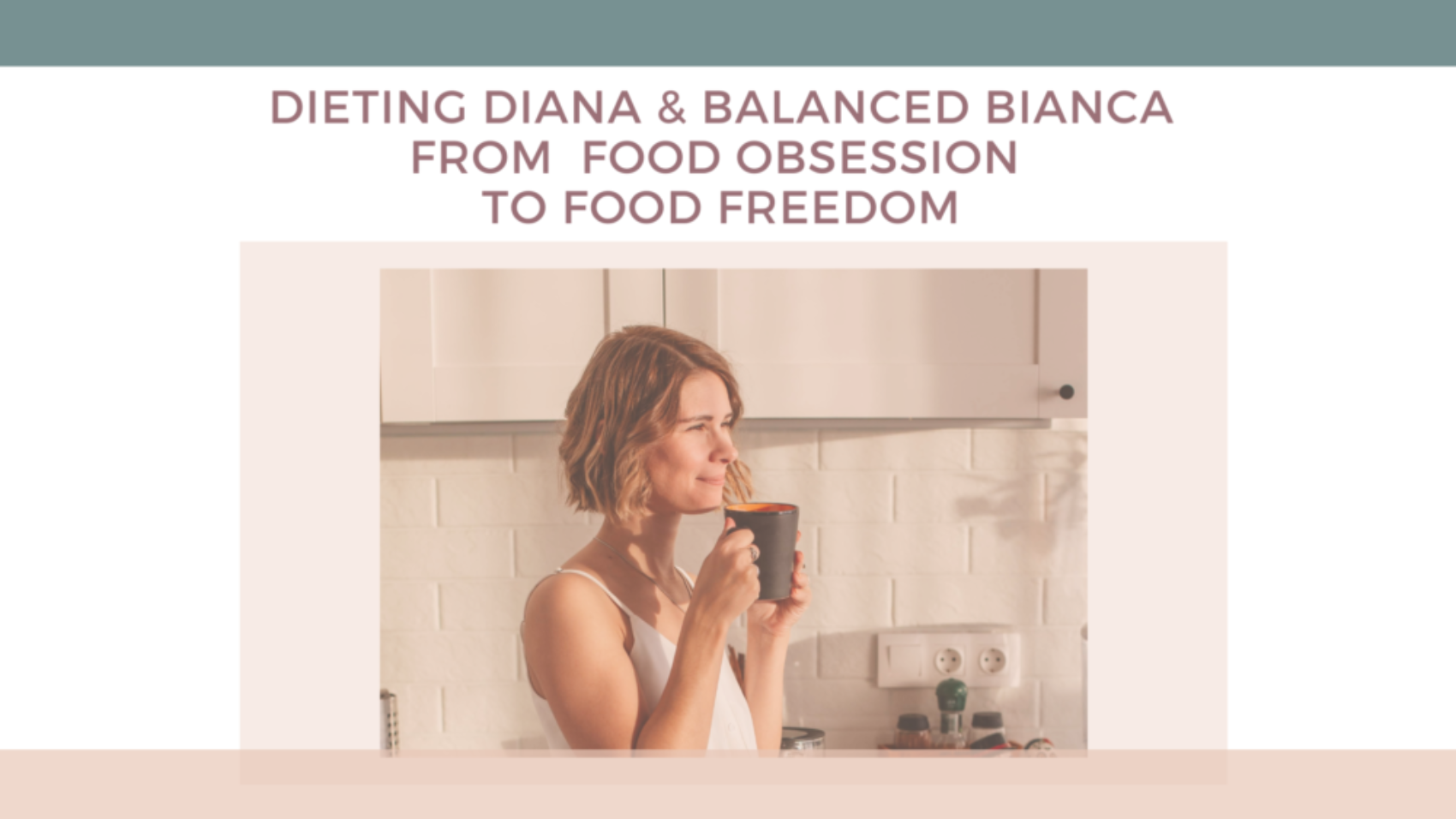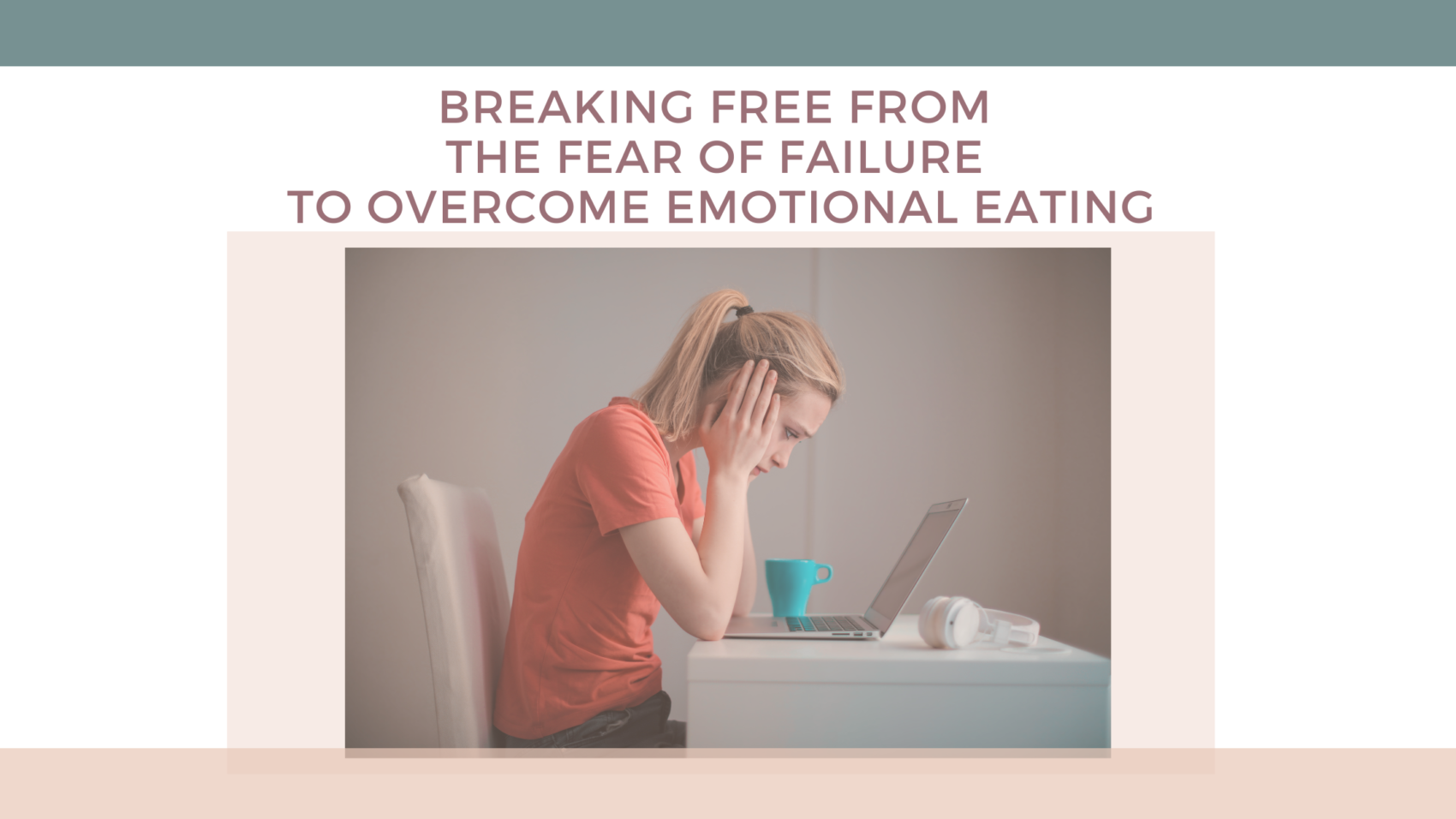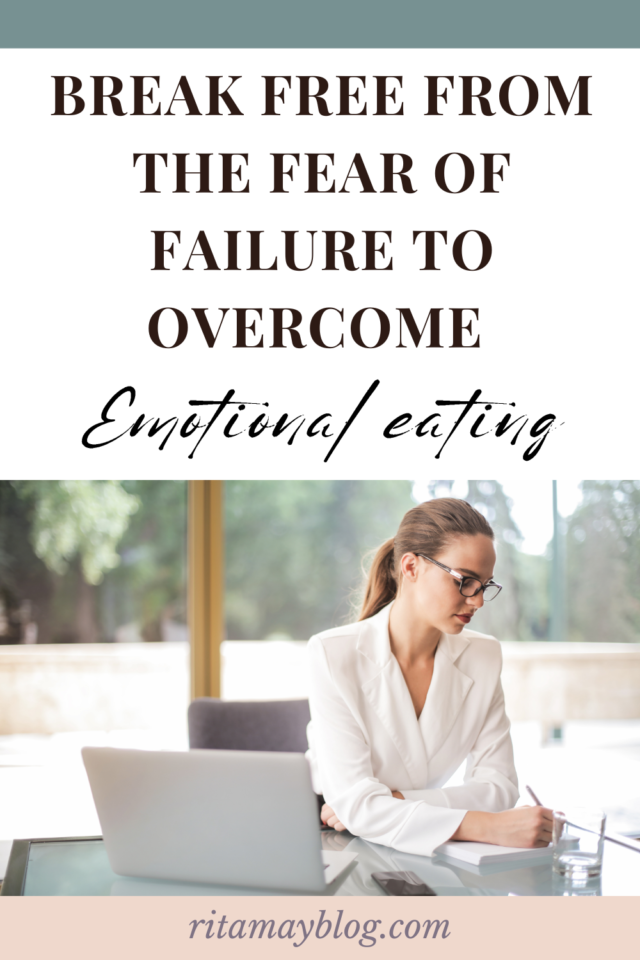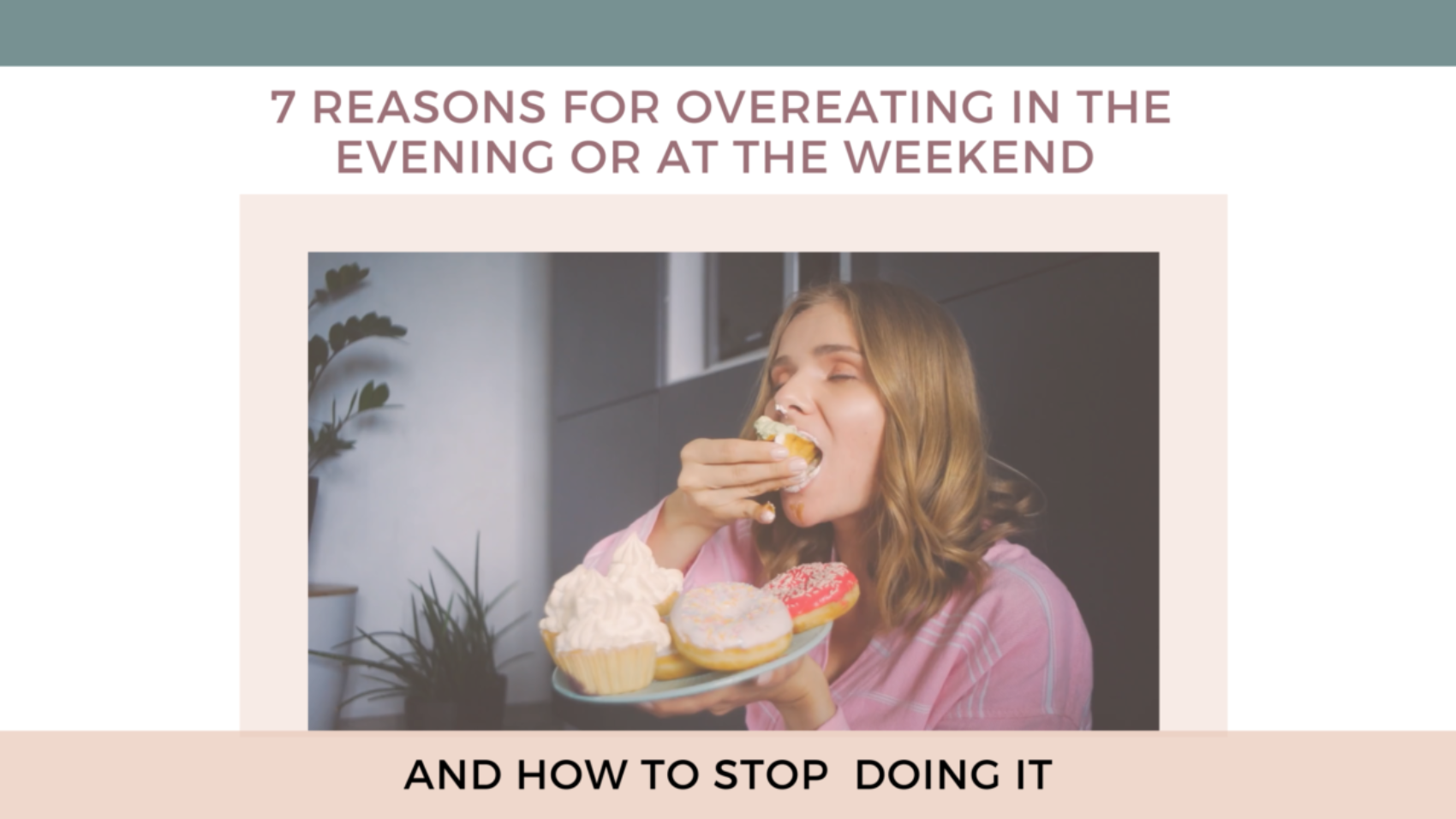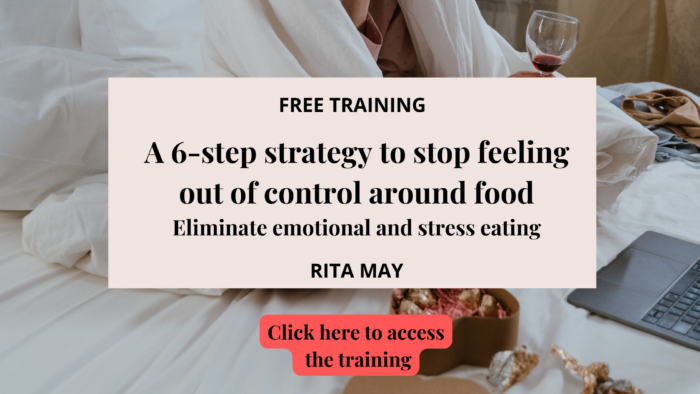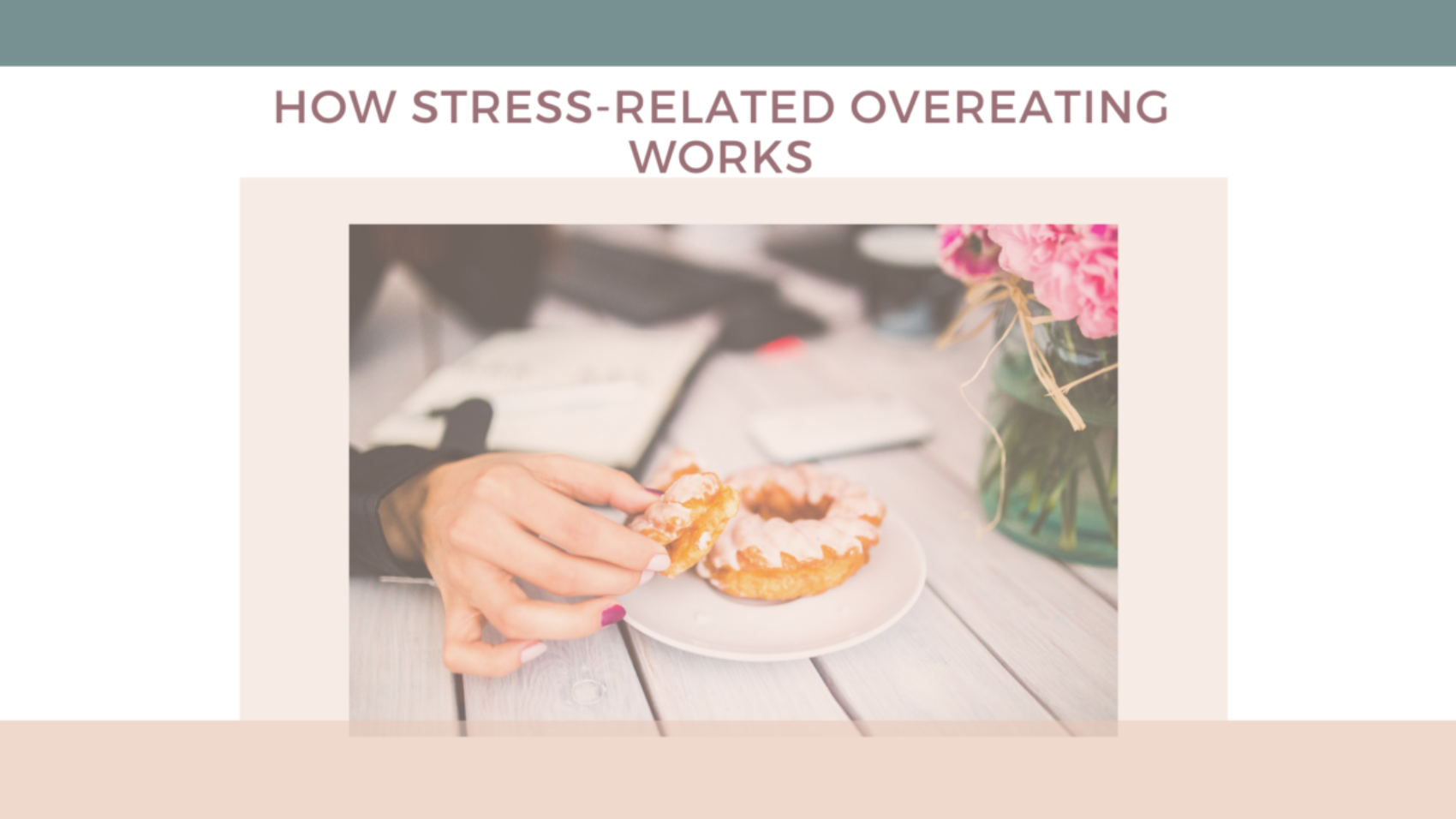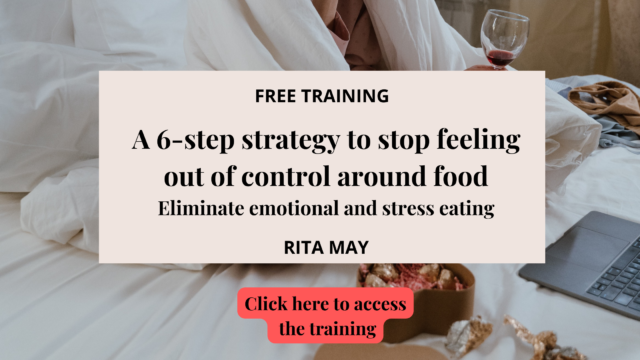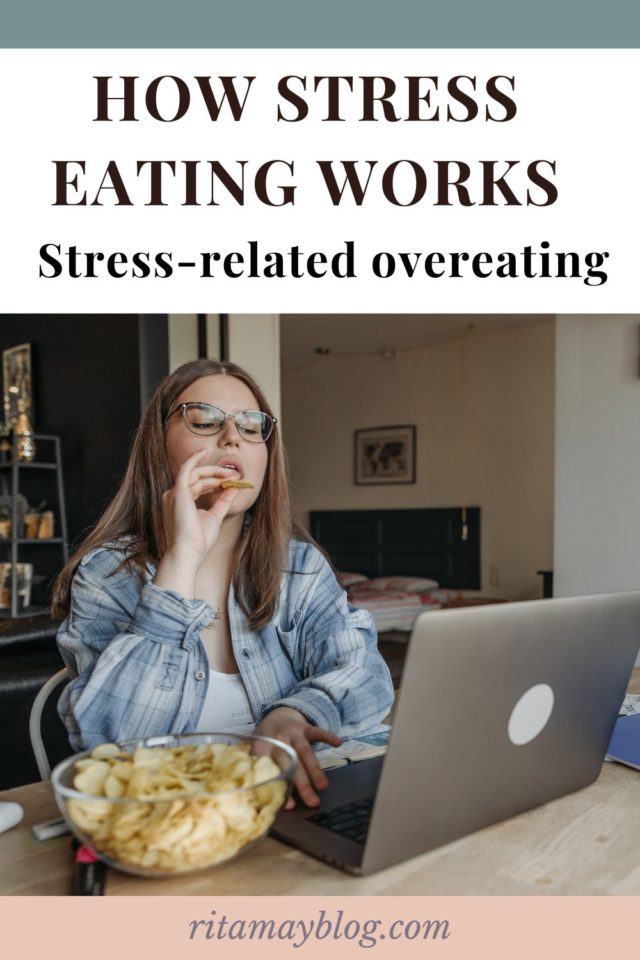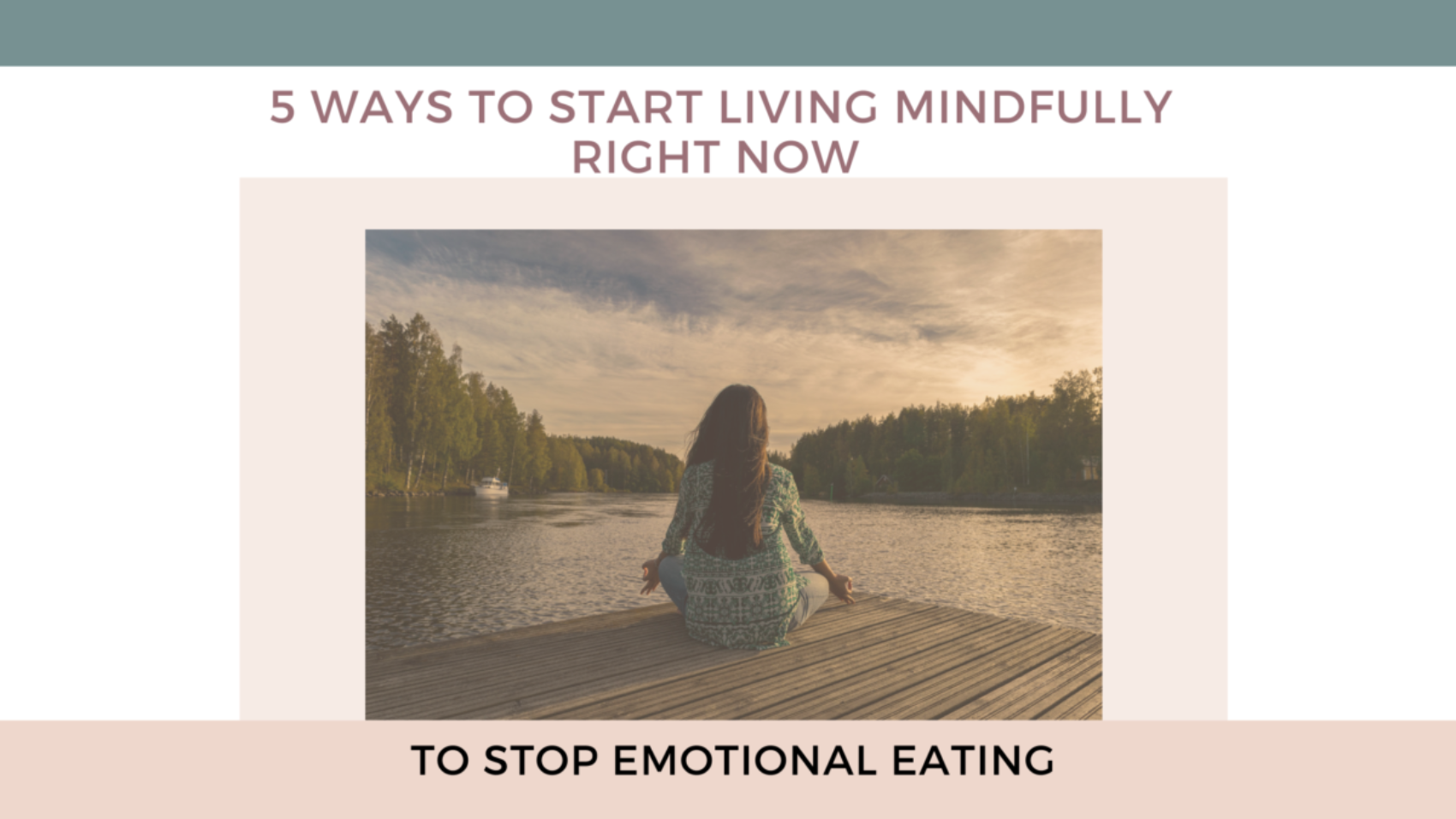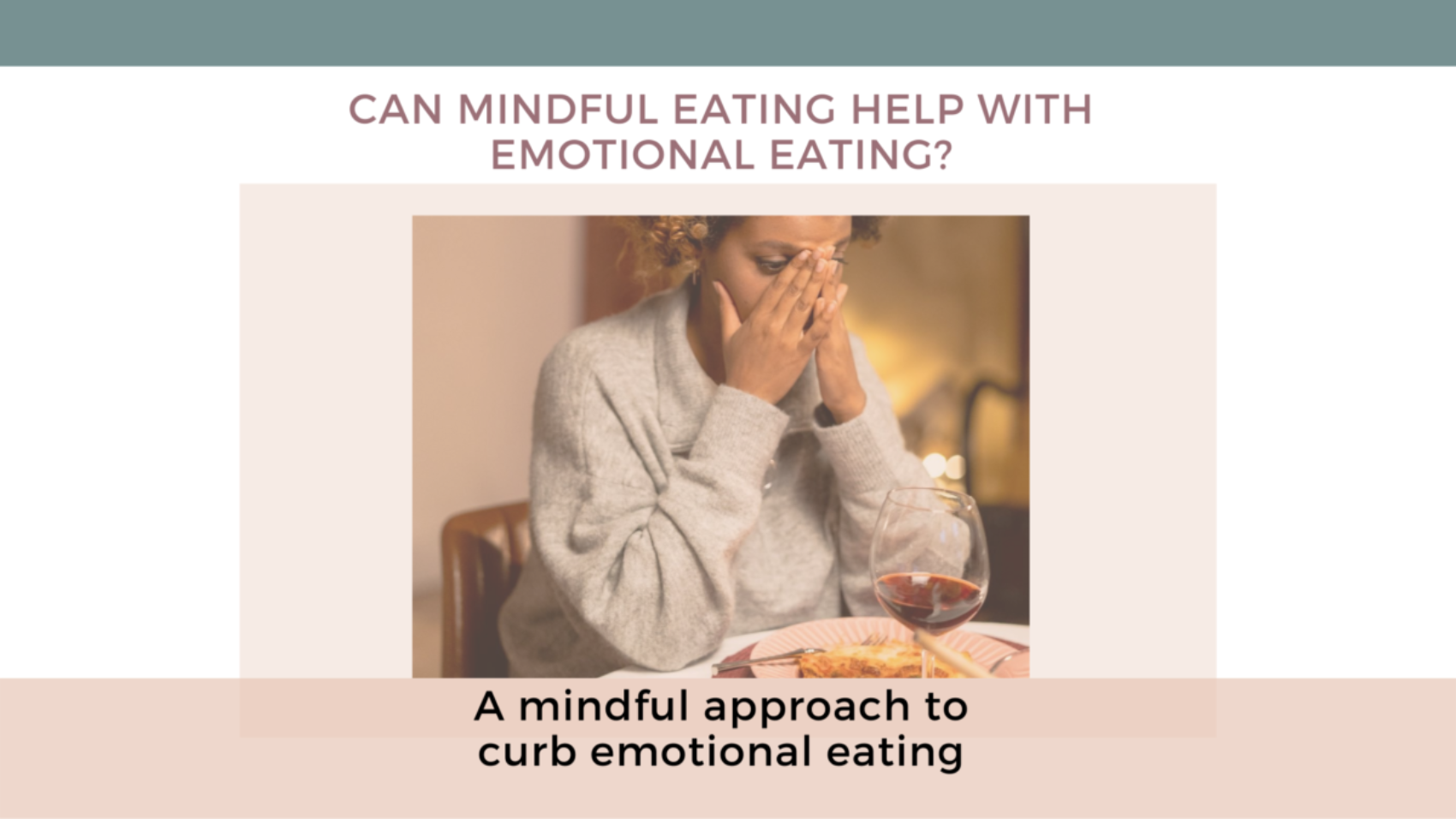As a high-achieving professional woman, you’ve built your life on mastering challenges, solving complex problems, and achieving success in your career.
But when it comes to your relationship with food, things might not be so clear-cut. If you’ve ever struggled with overeating, emotional eating, or binge eating, you’re not alone—and there’s a good chance that some common misconceptions are holding you back from finding the solutions you need.
Understanding the triggers behind your overeating is crucial to taking control of your habits and creating a healthier relationship with food. However, there are several myths about these triggers that can make the journey to self-awareness and change more difficult than it needs to be.
In this article, we’ll debunk four of the most pervasive myths about triggers for overeating and help you see the path forward more clearly.
